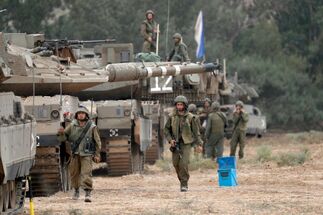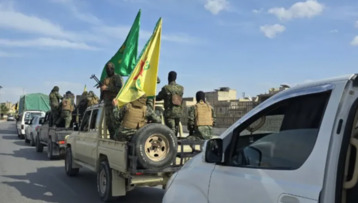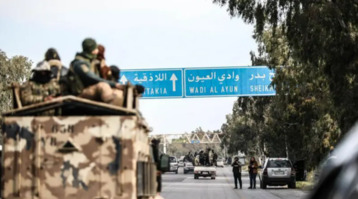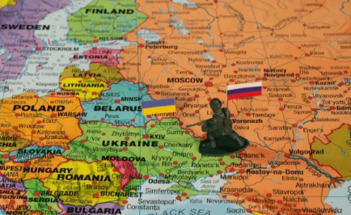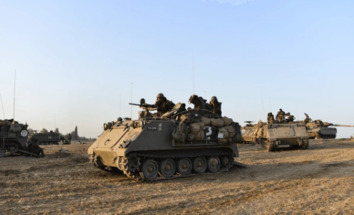-
Israel Launches Airstrikes on Southern Lebanon Amid Ongoing Conflict
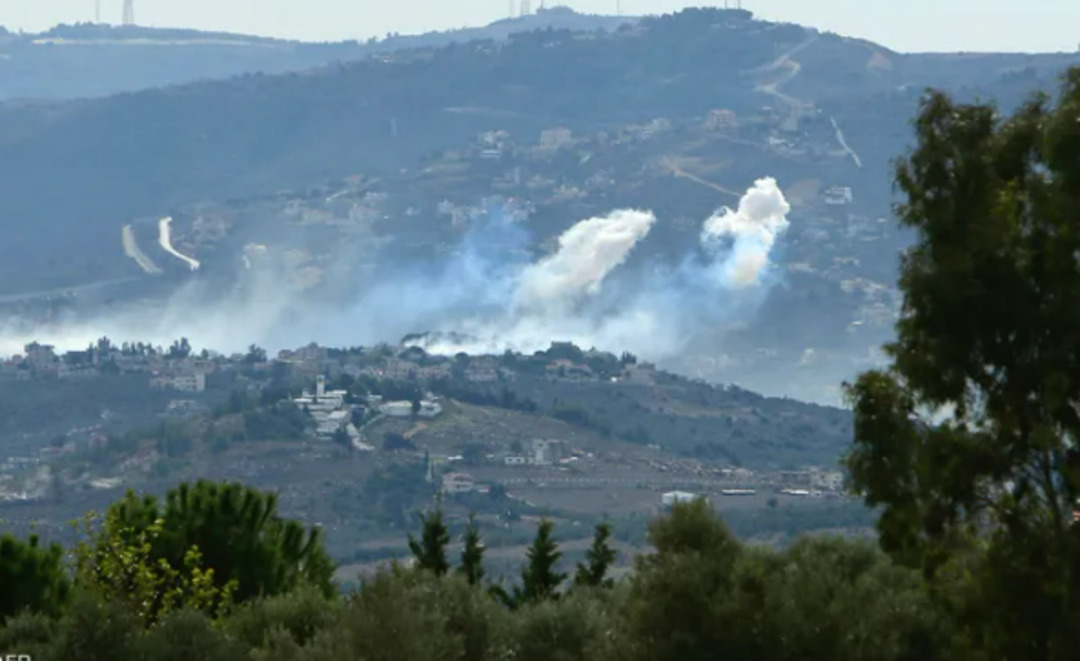
As Israeli airstrikes continue across various regions in Lebanon, Israel carried out five airstrikes today, Thursday, on the town of Tabbineh in southern Lebanon, according to a reporter from Al Arabiya/Al Hadath.
Airstrikes also targeted the towns of Kafra, Majdel Silim, Deir Kifah, and Bint Jbeil with two additional strikes. A vehicle in the city of Sidon was also bombed.
Additionally, rockets were fired at the Upper Galilee region in northern Israel, according to the Al Arabiya/Al Hadath correspondent. Rockets were launched at Akko, Nahariya, and the suburbs of Haifa.
Earlier today, Israel targeted a vehicle on the Arayia road in Mount Lebanon, where a drone struck a car on the Kahaleh-Arayia road, the international route connecting the capital Beirut to the Bekaa Valley (to the east), resulting in the death of a woman and the injury of a man accompanying her.
Furthermore, a Lebanese security source reported that the final toll from a series of Israeli airstrikes on the Bekaa Valley and Baalbek yesterday reached 54 dead and 21 wounded.
The Israeli army announced that its fighter jets attacked 110 targets in Lebanon and the Gaza Strip over the past day. In a statement, it clarified that it targeted 20 sites in Baalbek hermel and north of the Litani River, leading to the deaths of approximately 60 members of Hezbollah.
It also mentioned that among the sites targeted were dozens of Hezbollah installations, including rocket launchers and weapon depots, according to its claims.
It is noteworthy that since September 23, Israel has intensified its airstrikes across various regions in Lebanon, particularly in the south and the Bekaa Valley (to the east), as well as in the southern suburbs of Beirut, which were considered a stronghold for Hezbollah.
At the beginning of October, Israel initiated a "limited ground operation" in the south, as described, where its forces infiltrated several border towns.
Israel aims to push Hezbollah elements north of the Litani River, keeping the buffer zone between the Lebanon-Israel border free of armed groups to enable the return of settlers to the north after they fled from Hezbollah rockets.
You May Also Like
Popular Posts
Caricature
BENEFIT AGM approves 10%...
- March 27, 2025
BENEFIT, the Kingdom’s innovator and leading company in Fintech and electronic financial transactions service, held its Annual General Meeting (AGM) at the company’s headquarters in the Seef District.
During the meeting, shareholders approved all items listed on the agenda, including the ratification of the minutes of the previous AGM held on 26 March 2024. The session reviewed and approved the Board’s Annual Report on the company’s activities and financial performance for the fiscal year ended 31 December 2024, and the shareholders expressed their satisfaction with the company’s operational and financial results during the reporting period.
The meeting also reviewed the Independent External Auditor’s Report on the company’s consolidated financial statements for the year ended 31 December 2024. Subsequently, the shareholders approved the audited financial statements for the fiscal year. Based on the Board’s recommendation, the shareholders approved the distribution of a cash dividend equivalent to 10% of the paid-up share capital.
Furthermore, the shareholders endorsed the allocation of a total amount of BD 172,500 as remuneration to the members of the Board for the year ended 31 December 2024, subject to prior clearance by related authorities.
The extension of the current composition of the Board was approved, which includes ten members and one CBB observer, for a further six-month term, expiring in September 2025, pending no objection from the CBB.
The meeting reviewed and approved the Corporate Governance Report for 2024, which affirmed the company’s full compliance with the corporate governance directives issued by the CBB and other applicable regulatory frameworks. The AGM absolved the Board Members of liability for any of their actions during the year ending on 31st December 2024, in accordance with the Commercial Companies Law.
In alignment with regulatory requirements, the session approved the reappointment of Ernst & Young (EY) as the company’s External Auditors for the fiscal year 2025, covering both the parent company and its subsidiaries—Sinnad and Bahrain FinTech Bay. The Board was authorised to determine the external auditors’ professional fees, subject to approval from the CBB, and the meeting concluded with a discussion of any additional issues as per Article (207) of the Commercial Companies Law.
Speaking on the company’s performance, Mr. Mohamed Al Bastaki, Chairman BENEFIT , stated: “In terms of the financial results for 2024, I am pleased to say that the year gone by has also been proved to be a success in delivering tangible results. Growth rate for 2024 was 19 per cent. Revenue for the year was BD 17 M (US$ 45.3 Million) and net profit was 2 Million ($ 5.3 Million).
Mr. Al Bastaki also announced that the Board had formally adopted a new three-year strategic roadmap to commence in 2025. The strategy encompasses a phased international expansion, optimisation of internal operations, enhanced revenue diversification, long-term sustainability initiatives, and the advancement of innovation and digital transformation initiatives across all service lines.
“I extend my sincere appreciation to the CBB for its continued support of BENEFIT and its pivotal role in fostering a stable and progressive regulatory environment for the Kingdom’s banking and financial sector—an environment that has significantly reinforced Bahrain’s standing as a leading financial hub in the region,” said Mr. Al Bastaki. “I would also like to thank our partner banks and valued customers for their trust, and our shareholders for their ongoing encouragement. The achievements of 2024 set a strong precedent, and I am confident they will serve as a foundation for yet another successful and impactful year ahead.”
Chief Executive of BENEFIT; Mr. Abdulwahed AlJanahi commented, “The year 2024 represented another pivotal chapter in BENEFIT ’s evolution. We achieved substantial progress in advancing our digital strategy across multiple sectors, while reinforcing our long-term commitment to the development of Bahrain’s financial services and payments landscape. Throughout the year, we remained firmly aligned with our objective of delivering measurable value to our shareholders, strategic partners, and customers. At the same time, we continued to play an active role in enabling Bahrain’s digital economy by introducing innovative solutions and service enhancements that directly address market needs and future opportunities.”
Mr. AlJanahi affirmed that BENEFIT has successfully developed a robust and well-integrated payment network that connects individuals and businesses across Bahrain, accelerating the adoption of emerging technologies in the banking and financial services sector and reinforcing Bahrain’s position as a growing fintech hub, and added, “Our achievements of the past year reflect a long-term vision to establish a resilient electronic payment infrastructure that supports the Kingdom’s digital economy. Key developments in 2024 included the implementation of central authentication for open banking via BENEFIT Pay”
Mr. AlJanahi concluded by thanking the Board for its strategic direction, the company’s staff for their continued dedication, and the Central Bank of Bahrain, member banks, and shareholders for their valuable partnership and confidence in the company’s long-term vision.
opinion
Report
ads
Newsletter
Subscribe to our mailing list to get the new updates!

